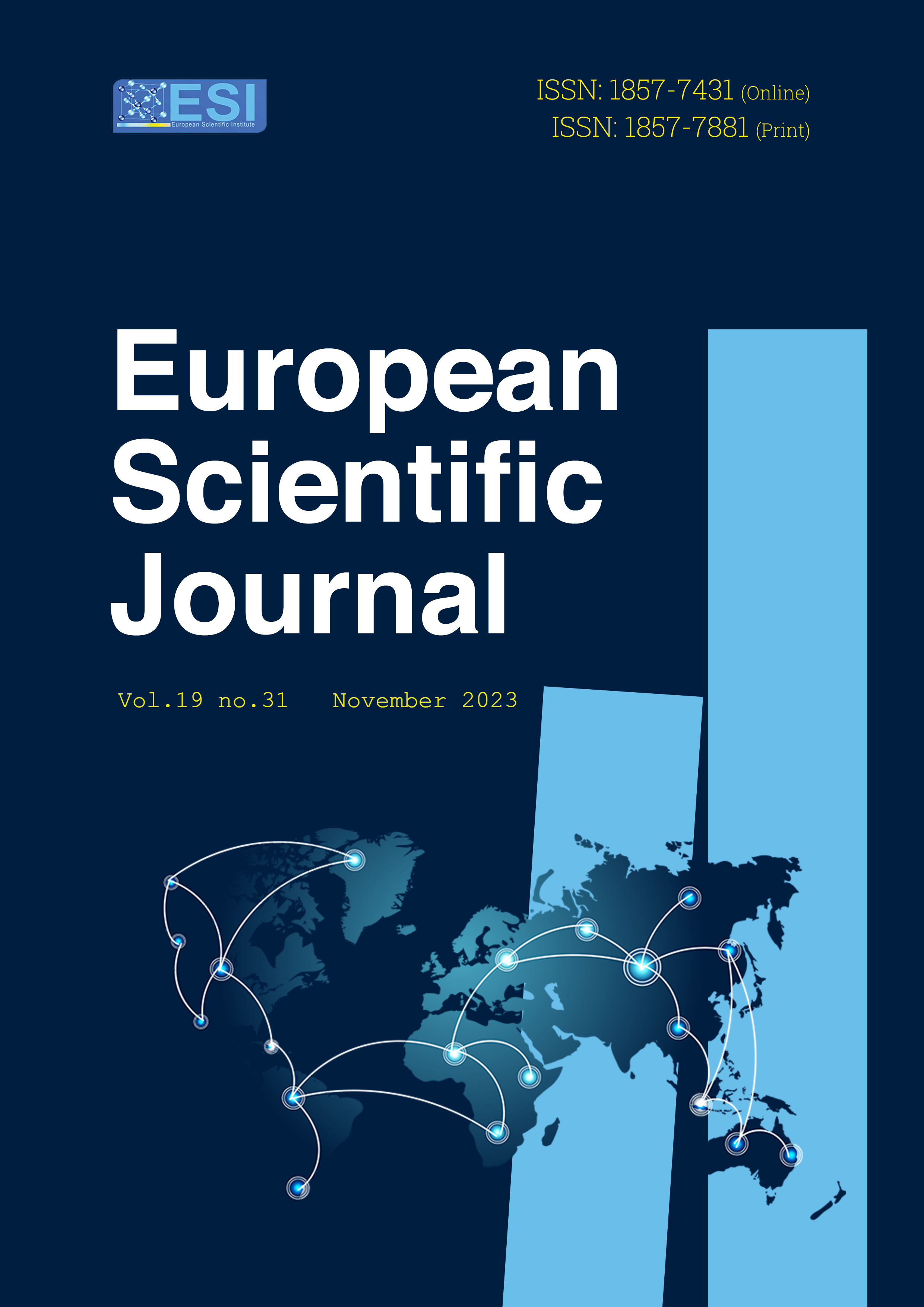Social Networking and Misinformation Challenges: Moroccan Students in Tertirary Education as a Case Study
Abstract
This paper focuses on examining how Moroccan university students approach the various social networking sites, including their self-perceived capacities to critically analyze and evaluate digital content in general and online news and information more specifically. The paper poses several research questions that all aim to investigate the issue under examination. This empirical endeavor used the survey as a research instrument to gather data, and presented a number of conclusions and recommendations for the Moroccan policy makers, stakeholders, and all concerned parties. The study further reported that most respondents advance by critically evaluating social media content and largely deploying various efficient verification measures and techniques. In the same vein, the majority of respondents highly rated their digital media perceived self-efficacy. Almost two thirds of the participants postulate that higher educational institutions should incorporate digital literacy skills in their curricula and syllabi.
Downloads
PlumX Statistics
References
2. Bulletin officiel No 6522.1er Rabii I; 1438 (1er – 12-2016). page 1861. Dahir No 1 – 16-122 du 6 Kaada 1437 (10 aout 2016). loi No 88-13 relative à la presse et à l’édition. https://www.ilo.org/dyn/natlex/docs/ELECTRONIC/103181/125152/ F2056249412/MAR-103181.pdf
3. Cardoso, G., Lapa, T., & Di Fatima, B. (2016). People are the message? Social mobilization and social media in Brazil. International Journal of Communication, 10, 22.
4. Fernandez, M. & Alani, H. (2018). Online misinformation: Challenges and future directions. In Companion Proceedings of the Web Conference 2018 (pp. 595-602).
5. Graham, L. & Metaxas, P. T. (2003). " Of course it's true; I saw it on the Internet!" critical thinking in the Internet era. Communications of the ACM, 46(5), 70-75.
6. Harjule, P., Manva, M. T., Mehta, T., Gurjar, S., & Agarwal, B. (2023). Analyzing misinformation sharing amongst college students in India during COVID-19. Procedia Computer Science, 218, 671-685.
7. Kaplan, M. & Blakley, J. (2009). The business and culture of social media. The Norman Lee Center. Barcelona Media Center. Spain. http://www.learcenter.org/pdf/businessandcultureofsocialmedia.pdf
8. Kumar, S. & Shah, N. (2018). False information on web and social media: A survey. arXiv preprint arXiv:1804.08559.
9. Martens, B., Aguiar, L., Gomez-Herrera, E., & Mueller-Langer, F. (2018). The digital transformation of news media and the rise of disinformation and fake news. The European Science Hub. JRC Technical reports.
10. Meel, P. & Vishwakarma, D. K. (2020). Fake news, rumor, information pollution in social media and web: A contemporary survey of state-of-the-arts, challenges, and opportunities. Expert Systems with Applications, 153, 112986.
11. Meserole, C. (2018). How misinformation spreads on social mediaAnd what to do about it. https://www.brookings.edu/blog/order-fromchaos/2018/05/09/how-misinformation-spreads-on-social-media
12. Mrah, I. & Tizaoui, H. (2018). The Rise of Misinformation in the Digital Age: Moroccan Students' Attitudes and Perceptions of Fake News Online. Journal of English Language Teaching and Linguistics, 3(2), 117-135.
13. Oliver, P. (2018). The State of Disinformation on Social Media. NYU Center for Data Sciencehttps://medium.com/center-for-data-science/thestate-of-disinformation-on-social-media
14. Orhan, A. (2023). Fake news detection on social media: the predictive role of university students’ critical thinking dispositions and new media literacy. Smart Learn. Environ. 10, 29 https://doi.org/10.1186/s40561-023-00248-8
15. Ott, M., Choi, Y., Cardie, C., & Hancock, J. T. (2011). Finding deceptive opinion spam by any stretch of the imagination. arXiv preprint arXiv:1107.4557.
16. Pesonen, T. (2018). The effects of fake news on consumer trust in social media marketing: A quantitative study on consumer mindset. Metropolia University of Applied Sciences. https://www.theseus.fi/bitstream/handle/10024/150173/
17. Ponera, J. M. & Mubuyaeta, M. M. (2023). The use of social media for knowledge exchange in the Era of misinformation by the Tanzania higher education students.
18.Rizana, R., Tuhuteru, L., Nuzalifa, Y. U., Rachman, R. S., & Andika, A. (2023). Overcoming The Spread of Hoax in Social Media through Strengthening Digital Literacy Contained with Character Education. Jurnal Pendidikan Dan Konseling (JPDK), 5(1), 2821- 2827.
19. Steinfeld, N. (2023). How Do Users Examine Online Messages to Determine If They Are Credible? An Eye-Tracking Study of Digital Literacy, Visual Attention to Metadata, and Success in Misinformation Identification. Social Media+ Society, 9(3), 20563051231196871.
20. Thurlow, C. (2013). Fakebook: Synthetic media, pseudo-sociality and the rhetorics of Web 2.0. Discourse, 2(0), 225-248.
21. Tucker, J. A., Guess, A., Barberá, P., Vaccari, C., Siegel, A., Sanovich, S., & Nyhan, B. (2018). Social media, political polarization, and political disinformation: A review of the scientific literature. Political polarization and political disinformation: a review of the scientific literature (March 19, 2018).
22. Wei, L., Gong, J., Xu, J., Abidin, N. E. Z., & Apuke, O. D. (2023). Do social media literacy skills help in combating fake news spread? Modelling the moderating role of social media literacy skills in the relationship between rational choice factors and fake news sharing behaviour. Telematics and Informatics, 76, 101910.
Copyright (c) 2023 Mohamed El Kandoussi

This work is licensed under a Creative Commons Attribution 4.0 International License.








